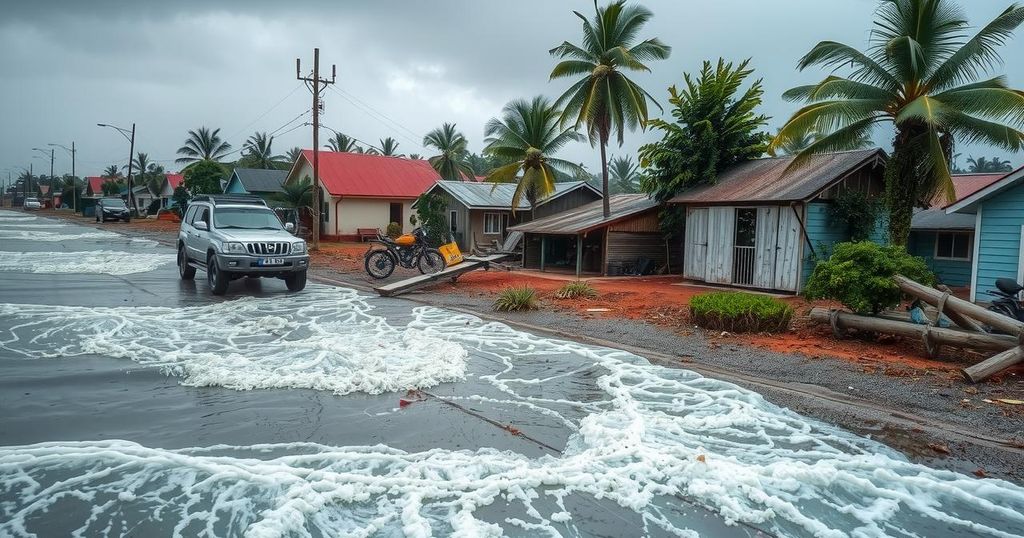Impact of Cyclone Dikeledi: Fatalities and Displacement in Madagascar
Cyclone Dikeledi has killed three people and displaced over 5,000 in Madagascar, according to the IFRC. It caused minimal damage in Mayotte and came shortly after Cyclone Chido, which had devastating effects in the region. Ongoing monitoring and vigilance are emphasized as the cyclone progresses southwest of Madagascar.
Tropical Cyclone Dikeledi has tragically claimed three lives and displaced over 5,000 individuals in Madagascar, as confirmed by the International Federation of Red Cross and Red Crescent Societies (IFRC) and the National Office for Risk and Disaster Management (BNGRC). After crossing the Mozambique Channel, the cyclone has shifted southwest of Madagascar. The IFRC reported, “3 deaths and 5,216 affected people reported,” emphasizing the need for vigilance among communities in the affected areas.
Before making landfall in Madagascar, Cyclone Dikeledi had approached Mayotte, a French overseas territory, where authorities issued a red alert. Fortunately, the damage in Mayotte was minimal, with only minor flooding and disruptions to infrastructure. As the cyclone continues its trajectory, the IFRC alongside local Red Cross teams remains vigilant and committed to monitoring the evolving situation and providing necessary support.
This recent weather event follows the devastating impacts of Cyclone Chido, which struck the region on December 14, 2024, leading to extensive fatalities and injuries. Cyclone Chido resulted in 35 confirmed deaths, around 2,500 injuries, and the displacement of up to 100,000 people, causing significant infrastructural challenges for relief efforts. Following the aftermath of Cyclone Chido, French President Emmanuel Macron was briefed by local authorities about severe infrastructural damage that hindered rescue operations.
Cyclones pose severe threats to coastal regions in the Indian Ocean, particularly in Madagascar and surrounding territories, where extreme weather events have heightened in frequency and intensity. The current situation with Cyclone Dikeledi highlights ongoing issues stemming from climate change impacts and raises concerns about the preparedness and resilience of communities at risk. Previous cyclones, such as Cyclone Chido, have already demonstrated the catastrophic human and infrastructural toll these storms can have, overwhelming local and regional recovery efforts. The role of organizations like the IFRC is crucial as they provide relief and assist affected populations in navigating the aftermath of such disasters. Close coordination with local authorities ensures that communities can respond effectively to increasingly severe weather conditions and their consequences.
In summary, Cyclone Dikeledi has resulted in the loss of life and significant displacement in Madagascar while sparing Mayotte from major damage. The tragedy adds to the region’s recent struggles with severe weather, notably the devastation wrought by Cyclone Chido. Enhanced preparedness and ongoing monitoring remain critical as local and international agencies work together to support affected communities and mitigate further risks arising from such extreme weather events. Organizations like the IFRC play a vital role in ensuring that relief efforts are executed effectively in the face of these challenges, stressing the importance of resilience in vulnerable regions.
Original Source: www.aa.com.tr




Post Comment